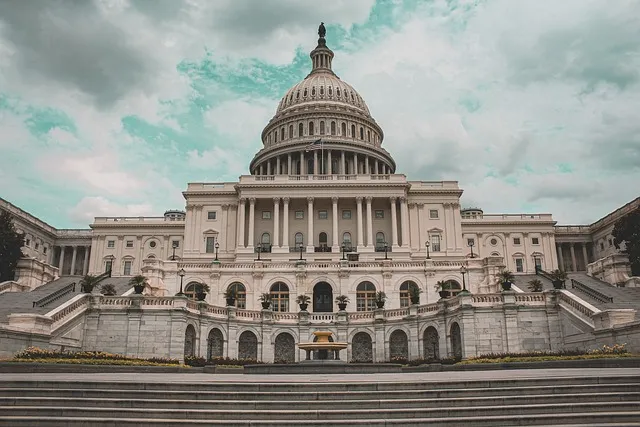Capitol Hill Kaiser Counselors act as mediators between advocacy groups, policymakers, and agencies, offering strategic guidance in legislation to ensure effective campaigns. They promote work-life integration for Capitol Hill workers' families through counseling services, influencing lawmakers with persuasive narratives. Building alliances with these counselors amplifies the impact of family therapy initiatives, enhances influence over federal employee assistance programs, and shapes policies to support public sector families. Compelling messaging based on real stories drives public support, while measuring success involves clear goals and data-driven metrics. Lobbying strategies combined with knowledge of federal services secure policy wins.
In the dynamic realm of advocacy campaign management, success hinges on navigating the intricate policy landscape of Capitol Hill. This article explores a strategic win, highlighting key components that led to victory. We delve into understanding the legislative environment and the invaluable insights shared by Capitol Hill Kaiser Counselors. By building strong alliances with these experts, campaigns can craft compelling messaging for public engagement. Furthermore, we emphasize the importance of measuring success through evaluating campaign impact and securing advocacy wins.
- Understanding the Policy Landscape: Capitol Hill Insights
- Building Strategic Alliances with Kaiser Counselors
- Crafting Compelling Messaging for Public Engagement
- Measuring Success: Evaluating Campaign Impact and Advocacy Wins
Understanding the Policy Landscape: Capitol Hill Insights

Navigating the intricate policy landscape on Capitol Hill requires a deep understanding of how decisions are made and who holds the power. The Capitol Hill Kaiser Counselor plays a pivotal role here, acting as a bridge between advocacy groups, policymakers, and government agencies. They possess valuable insights into the ebb and flow of legislation, ensuring that campaigns remain strategic and effective.
By leveraging their expertise in the Capitol Hill counseling services, these professionals can help organizations advocate for issues related to work-life integration among Capitol Hill workers, including support for children of government workers counseling. This knowledge allows them to anticipate policy shifts, identify key stakeholders, and craft compelling narratives that resonate with lawmakers.
Building Strategic Alliances with Kaiser Counselors

To achieve a successful advocacy campaign win, building strategic alliances with Capitol Hill Kaiser Counselors is paramount. These partnerships leverage networks and expertise to amplify the impact of initiatives focused on family therapy in government service. By aligning with professionals who have deep knowledge of government affairs careers counseling, organizations can enhance their influence and navigate complex federal employee assistance programs more effectively.
This collaborative approach not only strengthens messaging but also opens doors to new opportunities. Together, these alliances can shape policies that better support the unique needs of families serving in public sector roles. Such strategic partnerships are key to securing victories that resonate across various levels of government, ultimately fostering a supportive environment for family therapy within federal employment assistance programs.
Crafting Compelling Messaging for Public Engagement

In crafting a successful advocacy campaign, compelling messaging is key to engaging the public and gaining support. When addressing issues like post-traumatic stress disorder (PTSD) counseling, Capitol Hill Kaiser Counselor experts emphasize the importance of relatable, data-driven narratives. By framing the conversation around real stories and personal growth, the campaign resonates with a broader audience. For instance, highlighting the impact of Capitol Hill relationship counseling for couples or marital therapy for federal families can illustrate how targeted interventions address specific challenges faced by these communities.
This strategy requires careful consideration of language and tone to ensure messages are both powerful and accessible. Tailoring content for different platforms—from social media to traditional media outlets—is essential to reaching diverse audiences. Incorporating insights from mental health professionals, coupled with real-life success stories, strengthens the campaign’s credibility and fosters public trust, ultimately driving engagement and advocacy for these critical services.
Measuring Success: Evaluating Campaign Impact and Advocacy Wins

Measuring success is a vital component of any advocacy campaign. Evaluating its impact and assessing advocacy wins allows stakeholders to understand the effectiveness of their efforts. This process begins by setting clear, measurable goals aligned with the campaign’s objectives. By utilizing data-driven metrics, such as media coverage, policy changes, or increased public awareness, advocates can gauge the reach and influence of their initiatives.
In the context of navigating Capitol Hill, successful advocacy often involves fostering strong relationships with key decision-makers. A Kaiser Counselor, for instance, can play a pivotal role in facilitating these connections and ensuring that messages are conveyed effectively. Additionally, lobbying 101 for federal employees underscores the importance of understanding legislative processes, which is crucial for securing meaningful policy wins. These strategies, combined with a deep knowledge of federal employment transition services, enable advocates to achieve tangible results and make a lasting impact on public policy.
An effective advocacy campaign management win requires a deep understanding of the Capitol Hill policy landscape, strategic alliances with influential Kaiser Counselors, compelling messaging for public engagement, and robust evaluation of campaign impact. By navigating these key elements, campaigns can achieve tangible results, ensuring their voice is heard and their goals aligned with the broader political agenda. This holistic approach fosters meaningful change, demonstrating the power of collaborative advocacy efforts on Capitol Hill.






